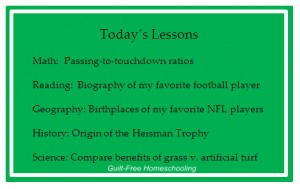Carolyn and Jen will be leading two workshops at the NICHE Conference in Des Moines, IA, (HyVee Hall, downtown) on June 10-11.
“What Type of Homeschooler Are You?” (Friday, 2:30pm) Are you struggling with homeschooling and feel like you’re working against yourself? You may be! Identifying your own characteristic homeschooling style can make each day go more smoothly and free you from the guilt of thinking you don’t “measure up” to other families. Learn what simple mistakes could be responsible for many of the problems you encounter each day.
“Taking the Mystery Out of Learning Styles” (Friday, 4pm) This incredibly informative workshop will show you how to use your students’ strengths to improve their weaknesses. Identify your children’s learning styles (visual, auditory, tactile, kinesthetic) to grab and hold their attention; identify your teaching style to spot tendencies to present every lesson in the same way. Learn how easily you can adapt any lesson to any learning style for any age! Your students can and will learn better and faster using these simple tips! (This workshop is hugely popular–parents call it a life-changer!)
These workshops are jam-packed with solid, practical information you can put to use immediately. Come prepared to take notes, because you’ll want to remember everything!
Look for the Guilt-Free Homeschooling booth in the Vendor Hall. Our books will be available, including a brand new book, The GFHS Solar System Learning Lab. We will also have a w-i-d-e variety of teaching & learning aids, manipulatives for all ages, and fabulous one-of-a-kind products that can’t be found anywhere else. We specialize in matching manipulatives to learning styles, and we have our new line of Learning Labs to help you teach a variety of subjects (we have restocked after nearly selling out in Chicago this Spring!). If you have wiggly-can’t-sit-still students or can’t-keep-their-hands-still students, you need to see our Learning Labs! Carolyn and Jen will be in the booth to answer your questions (except during their workshops, of course, but Q&A is a part of every workshop, too).



 Guilt-Free Homeschooling is the creation of Carolyn Morrison and her daughter, Jennifer Leonhard. After serious disappointments with public school, Carolyn spent the next 11 years homeschooling her two children, from elementary to high school graduation and college admission. Refusing to force new homeschooling families to re-invent the wheel, Carolyn and Jennifer now share their encouragement, support, tips, and tricks, filling their blog with "all the answers we were looking for as a new-to-homeschooling family" and making this website a valuable resource for parents, not just a daily journal. Guilt-Free Homeschooling -- Equipping Parents for Homeschooling Success!
Guilt-Free Homeschooling is the creation of Carolyn Morrison and her daughter, Jennifer Leonhard. After serious disappointments with public school, Carolyn spent the next 11 years homeschooling her two children, from elementary to high school graduation and college admission. Refusing to force new homeschooling families to re-invent the wheel, Carolyn and Jennifer now share their encouragement, support, tips, and tricks, filling their blog with "all the answers we were looking for as a new-to-homeschooling family" and making this website a valuable resource for parents, not just a daily journal. Guilt-Free Homeschooling -- Equipping Parents for Homeschooling Success!

Recent Comments